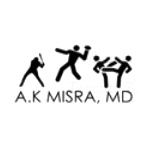Health Tips brought to you by U.S. HealthWorks Medical Group. Our experienced medical experts provide information here that we hope will broaden your health care knowledge.
Today we talk to Dr. A.K. Misra, a doctor for U.S. HealthWorks in South San Francisco, about sleep apnea.
Q: What is sleep apnea and what are some of the more common symptoms?
A: Sleep apnea is a sleep disorder characterized by pauses in breathing and/or periods of shallow breathing during sleep. Each pause may vary in length from a few seconds to a few minutes, and can happen numerous times during a sleep interval. The hallmark characteristic is loud or even violent interruptions in breathing, followed by what appears to be a choking or snorting sound when breathing resumes.
Q: What are the symptoms of sleep apnea and how can you tell if you have it?
A: Daytime fatigue, headaches, and a dry mouth are common symptoms of sleep apnea. A high percentage of patients are often unaware they have it because they are asymptomatic. The current estimate is that approximately 20 million to 22 million Americans have this disorder.
Q: Who needs to be tested for sleep apnea and how is testing done?
A: Anyone who has a concern should be screened as soon as possible because there are a myriad of negative health effects associated with sleep apnea. The sleep activity is diagnosed by a polysomnography, a sleep test often done in a sleep lab. However, there are other at-home tests that can also be done.
Sleep apnea is a focal point of attention because it’s found to be the primary cause of motor vehicle accidents in a high percentage of cases. As of 2014, the federal government mandated all commercial drivers be certified by the National Registry of Certified Medical Examiners (NRCME) in order to be issued a Department of Transportation certification, valid up to a maximum of two years. Without this certification, commercial drivers are not legally permitted to work. All U.S. HealthWorks providers are NRCME certified.
Q: Who is most at risk for having sleep apnea?
A: Obesity is the single most common cause. However, one may be very trim and have a different reason, like central sleep apnea and upper airway obstructive issues. Almost one-third (28 percent) of commercial truck drivers have mild to severe sleep apnea.
Q: How can you prevent sleep apnea?
A: Limit use of alcohol and medicines, such as sleeping pills and sedatives, before bed. These can relax your throat muscles and slow your breathing. Eat sensibly, exercise, and maintain a healthy weight. Stop smoking. The nicotine in tobacco relaxes the muscles that keep the airways open. If you don’t smoke, those muscles are less likely to collapse at night and narrow the airways.
Q: How do you treat sleep apnea?
A: A CPAP machine is commonly used. It works by mechanically forcing and keeping the airway open during sleep with positive airway ventilation. To demonstrate one’s sleep apnea is adequately treated and controlled, a report from the machine is generated, reviewed, and must meet the below minimum criterion:
- Use of the CPAP machine no less than five out of seven nights a week
- Use of the CPAP machine no less than four hours each night the machine is used
One of the more recent cutting-edge technologies with great promise are custom dental mouth pieces. Prosomnus devices are an exceptional product that may render the CPAP machine obsolete – visit www.prosomnus.com.






